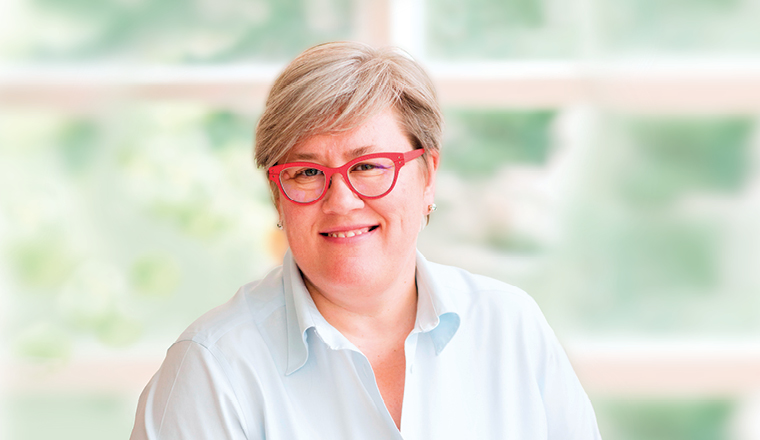Published: February 3, 2016
Rachel Kyte is the World Bank Group’s special envoy on climate change. She has spent more than a quarter century working on sustainability issues and climate change specifically. She tells Phil Thornton why Paris should prove to be the most important stepping stone towards a low carbon world.
The struggle to strike a deal between the world’s economies to limit their carbon emissions and so halt global warning has been such a long drawn-out campaign that many of the key players are long serving soldiers.
None more so than Rachel Kyte, the World Bank’s special envoy on climate change, who started out by helping to set up the Earth Summit in Rio de Janeiro in 1992.
“That was the first attempt to have sustainable development as the organising principle,” she said in an interview in the run-up to the Paris climate change conference. “So it was interesting at the UN General Assembly this year when we suddenly had universally agreed Sustainable Development Goals.”
What the story highlighted for Kyte was not just that climate change had moved from the fringe to the mainstream but each new issue that emerged was moving more quickly from the edge to the centre of the debate.
For example she said it had taken just two years for the idea of a carbon bubble — an overvaluation of companies dependent on fossil fuels — to move from the NGO world to the agenda of the Financial Stability Board.
“That’s a lot quicker than 23 years so the pace at which we understand how this is all linked together has improved,” she said.
After working as a policy adviser at the International Union for Conservation of Nature, Kyte joined the private sector arm of the World Bank, the International Finance Corporation (IFC), in 2000 where she rose to be vice president for business advisory services.
She joined the World Bank management team in 2011 and served as vice-president for sustainable development until being picked by World Bank President Jim Yong Kim in January 2014 to be his climate change envoy.
Stepping stone
Two years on and her focus for some time has been on the Paris climate change summit. She said a key stepping stone on the road to Paris was the 2014 agreement between the United States and China when President Barack Obama announced a new target to cut net greenhouse gas emissions 26%-28% below 2005 levels by 2025 and then-President Xi Jinping of China announced targets to peak CO2 emissions by around 2030. “The fact that we have a G2 that is functioning is hugely important,” she said.
But she pointed to many middle income countries in Eastern Europe, the Middle East and Africa who have emerged as donors and actors rather than recipients and victims. “The reality is that the transition to low carbon growth and to more resilient economies is going to be financed mostly by public procurement and private sector finance — most of that domestic.”
One key area where emerging markets need to do more in her opinion is to take advantage of the fall in the oil price and to reduce energy subsidies, which economists blame for encouraging unnecessary energy use and pollution.
“There are a number of countries moving to reduce harmful subsidies but nowhere near enough and nowhere near far enough,” she said. “If you could remove a few hundred billion dollars of waste out of the global economy, imagine what you could use that for.”
Kyte is also looking for further signs of a change in attitude among businesses, many of which are worried about how the new carbon emission rules will be administered across the world. She clearly believes these worries are overdone.
“I completely understand that from the viewpoint of the C-suite you want predictability, stability and calmness,” she said. “But quite frankly you didn’t get to the C-suite by sitting on a chair looking out at the ocean with a blanket wrapped around you. Give me a break.”
She said it was refreshing that a growing number of business leaders were putting themselves “in the face” of governments to lobby for the changes to the framework that will guarantee greater predictability and to help deliver what she called an orderly transition to low carbon growth.
“What I think is different from before is that this was concentrated on certain sectors, but what I see is the leaders of the pack and the first movers looking from the perspective of efficiency at driving carbon out of their business and their supply chain and at the adaptation risk of running their business.”
But for moves to limit carbon emissions to gain real traction, it will require the investment community to get on board. Understandably many are nervous about investing in markets where they do not have the expertise especially at a time of turmoil for emerging markets.
The test is still to get the trillions of dollars held by long-term investors such as pension funds and insurance companies into sustainable assets. Climate finance only makes up 0.5% of the global bond market.
“The challenge remains for emerging markets to persuade institutional investors that they have the developments that will get them the steady return they want,”she said.
Pre-Paris, post-Paris


